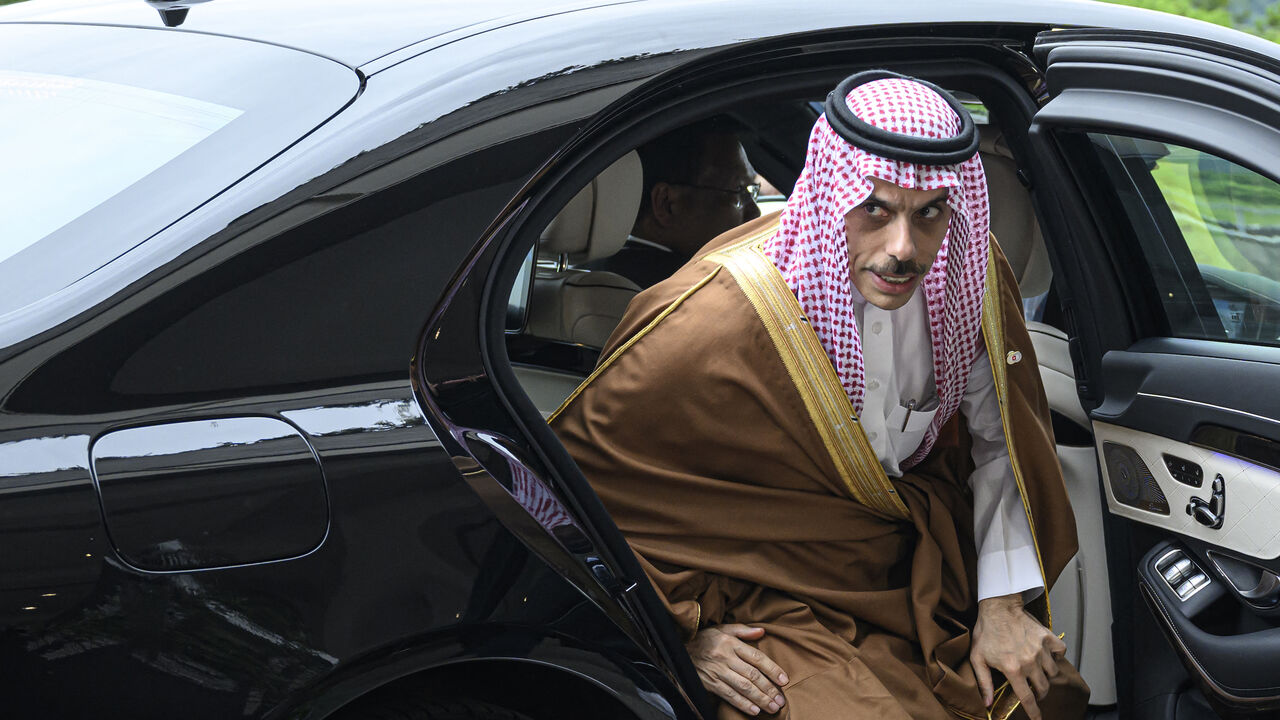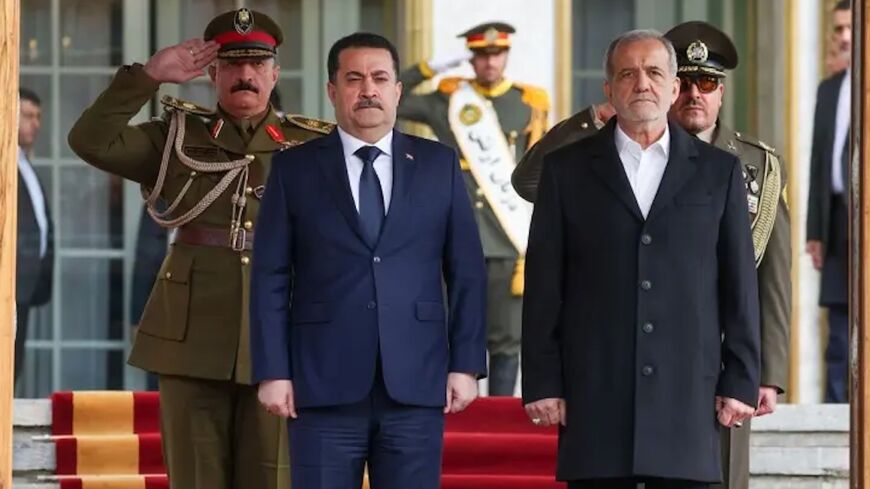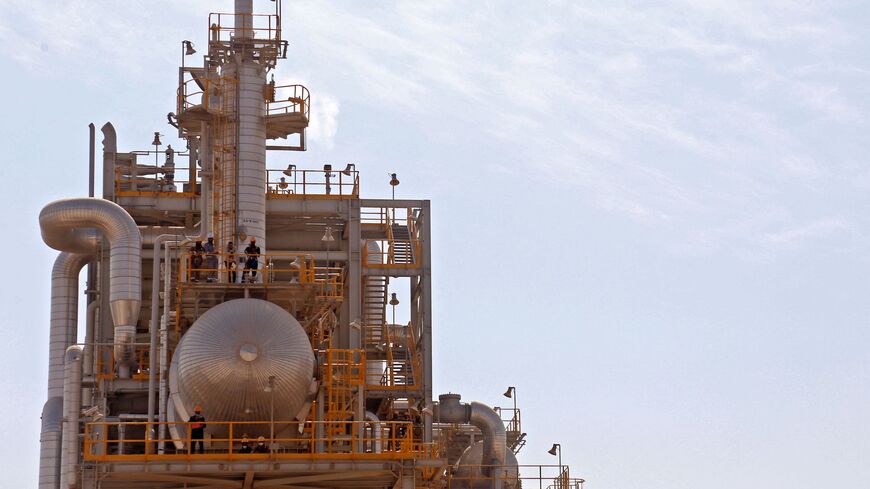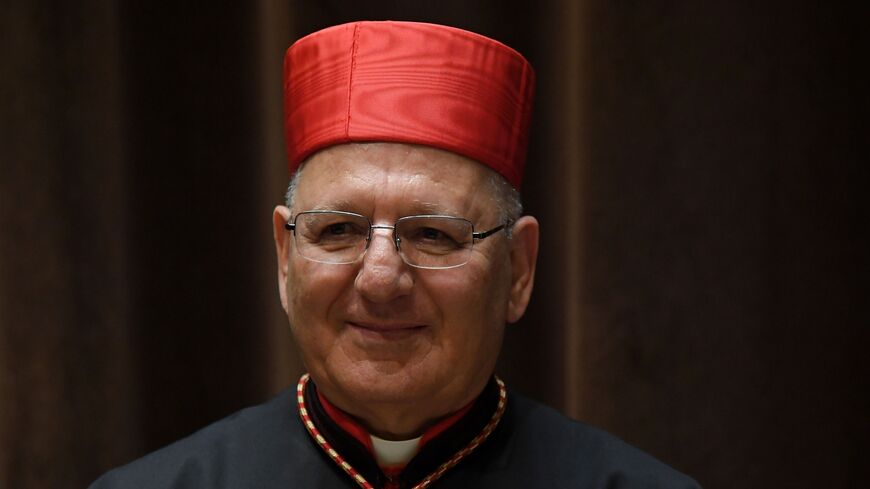Saudi FM makes unannounced visit to Iraq, meets Sudani: What we know
Saudi Arabia and Gulf states are showing increasing interest in Iran-dominated Iraq.

Saudi Foreign Minister Prince Faisal bin Farhan made an unannounced visit to Iraq on Thursday, his first in over a year as the kingdom seeks warmer political and economic relations with Baghdad.
Prince Faisal met Iraqi Prime Minister Mohammed Shia al-Sudani in the Iraqi capital. They discussed ways to improve bilateral relations politically and economically, including through the Saudi-Iraqi Coordination Council. During the meeting, the two men reviewed “the continued aggression in Gaza” and “the necessity of continued joint work and coordinating Arab and international efforts to stop the aggression,” the Iraqi prime minister’s office said in a post on X.
رئيس مجلس الوزراء السيد محمد شياع السوداني يستقبل وزير الخارجية السعودي. pic.twitter.com/LK47aarVxi
— المكتب الإعلامي لرئيس الوزراء 🇮🇶 (@IraqiPMO) August 22, 2024
The Saudi-Iraqi Coordination Council was founded in 2017 and seeks to foster cooperation between Iraq and Saudi Arabia with regard to security, politics, trade, investment, energy, tourism and more. The council held its fifth session in May of last year.
Iraqi Foreign Minister Fuad Hussein participated in the meeting between Prince Faisal and Sudani, the official Saudi Press Agency reported.
Prince Faisal last visited Baghdad in February 2023.
Why it matters: Saudi Arabia has sought to improve its relations with Iraq recently. Relations were severed in 1990 following Iraqi ruler Saddam Hussein’s invasion of Kuwait and were not resumed until 2015 — 12 years after the US invasion that toppled Hussein.
In June of last year, Saudi Arabia signed a deal to provide medical care to Iraqis throughout the country. The development was the first Saudi health care initiative in Iraq since 2003 and “resumed soft power engagement” on the part of the kingdom, according to a report from the Arab Gulf States Institute in Washington at the time.
“Saudi Arabia’s provision of medical aid to Iraq is seemingly a component of a broader soft power initiative designed to generate goodwill and trust among the Iraqi public,” read the report. “And cultivating a more positive reputation is likely to help Saudi Arabia as the kingdom looks to expand further into Iraq’s energy, investment and banking sectors.”
In July of 2023, Saudi Arabia and the United Arab Emirates agreed to invest $6 billion in Iraq. In 2022, Saudi Arabia and Iraq signed an electricity interconnection deal with plans to connect the Iraqi power grid to the kingdom’s.
Sudani has been pushing for more investment in Iraq and Gulf states have been investing more in the country. The Gulf’s interest has continued after Saudi Arabia and Iran, a major influence in Iraq, resumed relations in March of last year.
“Gulf Arab states, which have had a complicated relationship with Iraq, have pledged a string of investments as they seek to grow soft power in a country where regional rival Iran has unparalleled influence via a powerful network of allies,” read an April report from Reuters. “This has been partially enabled by a detente in ties between Iran and Saudi Arabia.”
Iran has had significant influence in Iraq post-2003, supporting various militias in the country and providing Iraq with electricity. Some observers say Iranian power in Iraq could determine the level of Saudi and Gulf engagement with the country.
“Questions remain over how Iran will react to a growing Gulf presence, while an upswing of violence has highlighted the fragility of Iraq's relative stability,” read the Reuters report.
Iran-backed militias in Iraq have escalated attacks on the US military’s presence in the country since the start of the Gaza war.
Know more: The China-brokered deal to re-establish relations between Saudi Arabia and Iran followed mediation by Iraq. The Iraqi government initiated mediation between the foes in 2019 in an effort to ease tensions, and hosted five sessions in Baghdad before the final agreement was signed in March of 2023, Al-Monitor reported at the time.






